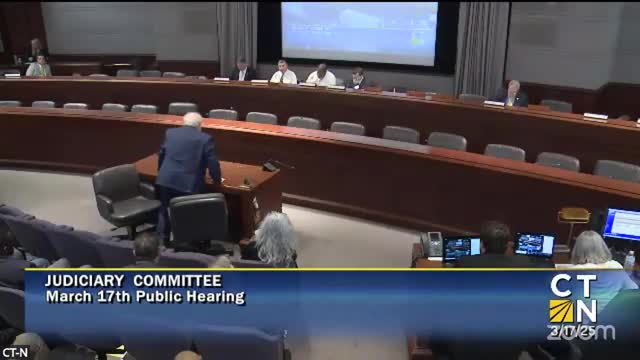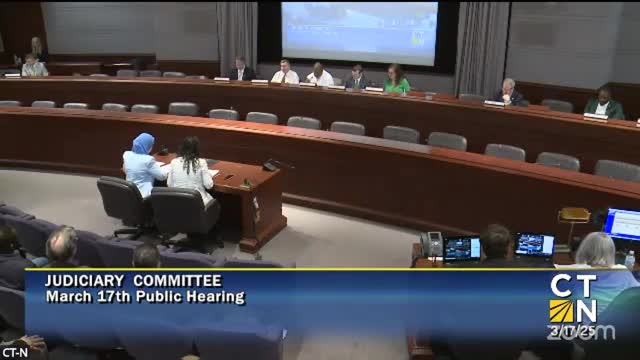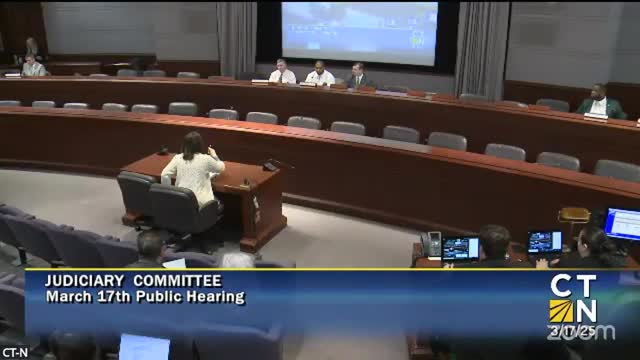Article not found
This article is no longer available. But don't worry—we've gathered other articles that discuss the same topic.

Fair‑rent commission opponents tell Judiciary Committee UAPA would add costly formality

Commission urges committee to implement racial and ethnic impact statements with clearer timelines and procedures

Supporters push shorter wait, fewer gatekeepers for Connecticut sentence‑mod law

